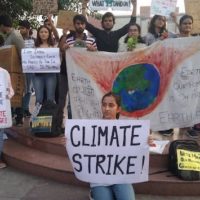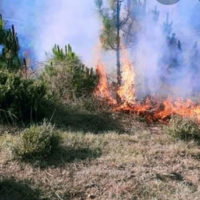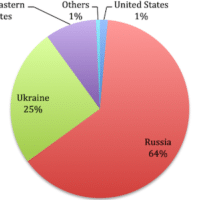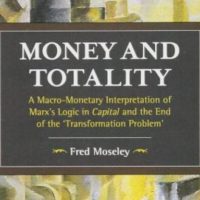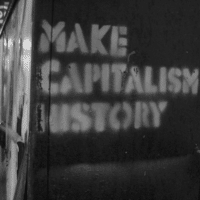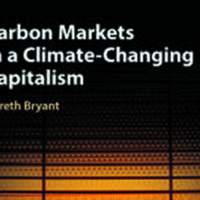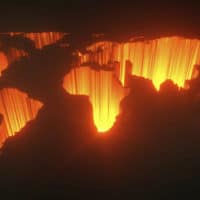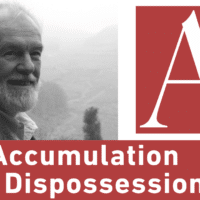-
Struggle for climate change is a struggle against capitalism
The struggle against inequality and for destruction of capital is innately linked with struggle for man-nature dialectics of the higher order where earth does not remain a commodity to be exploited.
-
Millions march against climate change, capitalism and war
Four million people participated in the global climate strike across every continent on Friday, many of them students who skipped school on that day. Demonstrations at more than 5,800 locations in 161 countries began in Australia and the Pacific, moved to Asia, Antarctica, Africa and Europe, and then to North and South America. This is the third such climate strike this year, following similar mass global demonstrations this past March and May, and the largest to date.
-
Late stage U.S. capitalism fosters death and despair, but can it foster class unity?
Self-determination is still an unknown concept to many despite the efforts of the movement for Black lives and related organizations.
-
Capitalism and climate change
The week from September 20 till September 27 has been designated as the week of the ‘Climate Strike’. It is an unprecedented event in its ambition to disrupt business as usual.
-
Russia has ‘oligarchs,’ the U.S. has ‘businessmen’
In 150 NYT, CNN and Fox articles, ‘oligarch’ seems reserved for Slavic billionaires
-
Green-smearing from Nicaragua to Bolivia
On one level the intensifying deceit of Western media foreign affairs coverage corresponds to the increasing desperation of Western elites confronting their failing global power and influence.
-
The systemic crisis of world capitalism
THE hallmark of a systemic, as distinct from a cyclical or sporadic, crisis of capitalism is that every effort to resolve the crisis within the broad confines of the system, defined in terms of its prevailing class configuration, only worsens the crisis.
-
Review of Money and Totality by Fred Moseley
Today, as the global economy flounders from crisis to crisis, Marx’s analysis of capitalism is the essential basis for a correct understanding of what is going on. Moseley’s book reaffirms key elements of this analysis.
-
What did Engels say about revolution?
Engels was a revolutionary democrat and a revolutionary realist, argues Dragan Plavšić
-
Don’t believe the hype about the ‘rules-based order’, capitalism is perpetual war
Why is war, or the threat of it, a permanent feature of our society? The most common answers point to contingencies–the psychology of particular world leaders, for example, or the specific gains to a company to be made from a conflict. Alternatively, they rely on universal claims that religion causes eternal strife or that conflict is part of our human nature.
-
Redwashing capital
Left tech bros are honing Marx into a capitalist tool
-
Making capitalism history
To perish or to radically transform the way we relate to one another and to nature, that is the question humanity has never had to face until now.
-
Freedom and slavery: the birth of capital
We are frequently told that capitalism equals ‘freedom’; that it is the organic product of ‘human nature’. But far from arising naturally, the birth of the ‘free’ market is built on violence, dispossession, and enslavement.
-
How working-class movements are moving beyond the confines of capitalism
The context for organizing today that faces working people across the world is one that must grapple with the challenges posed by a decentralized production process and a well-organized ruling class.
-
Climate change, dust bowls, fishery collapse: metabolic rifts of capitalism and the need for socialism
Humankind and the environment are hurtling toward unprecedented ecological crises. Global warming, sea level rise, and weather extremes due to carbon emissions are catastrophic enough, but they will mix and combine with ocean acidification, air and chemical pollution, water shortages, deforestation, fishery collapse, soil erosion, and mass extinction, throwing both nature and society off a cliff into the unknown.
-
Portrait of the 2009-2019 U.S. expansion
June 2019 marks the 10th anniversary of the current U.S. economic expansion. If it makes it through July it will surpass the 1991-2001 expansion as the longest on record. But while expansions are to be preferred over recessions, there are many reasons to view this record-breaking expansion critically. In fact, the nature of this expansion, hopefully captured in the following portrait, highlights the growing inability of the U.S. economic system, even when performing “well,” to meet majority needs.
-
Carbon markets in a climate-changing capitalism
Carbon Markets in a Climate-Changing Capitalism offers an account of why these earlier expectations were not matched by experience. While the contradictions of market solutions have not gone away, the difference this time is that we are just over a decade away from the IPCC’s 2030 benchmark for 1.5°C. The concentration and centralisation of emissions instead points towards a different pathway that can meet this challenge – one that begins by confronting the disproportionate control the biggest polluters have over our climate future.
-
Notes on Marx’s “General Law of Capitalist Accumulation”
Chapter 25 of Karl Marx’s, Capital, vol. 1 (“The General Law of Capitalist Accumulation”), not only explains the working conditions of the world’s peoples today; it also explains the conditions of our whole existence. Marx’s general law is nothing less than the lever upon which all our lives now pivot.
-
Global inequality in a time of climate emergency
Our worlds richest have a great deal of money. They also have the power to decide whether our civilization sinks or swims. So what can we do?
-
Anti-capitalist chronicles: Accumulation by Dispossession
Large capital takes over smaller capital and in the end you get a quasi monopolistic situation of the large capitalist dominating all else.

